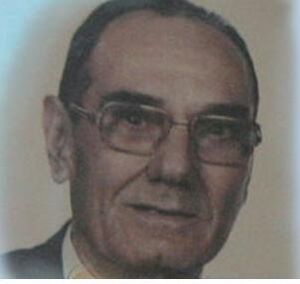Ezekias Papaioannou facts for kids
Quick facts for kids
Ezekias Papaioannou
|
|
|---|---|
|
Eζεκίας Παπαϊωάννου
|
|
 |
|
| 3rd general secretary of the Progressive Party of Working People |
|
| In office 1949–1988 |
|
| Preceded by | Fifis Ioannou |
| Succeeded by | Dimitris Christofias |
| Personal details | |
| Born | October 8, 1908 Kellaki, Cyprus |
| Died | April 10, 1988 (aged 79) Cyprus |
| Political party | Progressive Party of Working People |
| Spouses | Adeline Williams (m. 1940; div. 1946) Irene Markoulli (wid.) |
| Military service | |
| Allegiance | Second Spanish Republic United Kingdom |
| Battles/wars | Spanish Civil War Second World War |
Ezekias Papaioannou (Greek: Εζεκίας Παπαϊωάννου; October 8, 1908 – April 10, 1988) was an important Greek Cypriot leader. He was a communist politician who led a major political party in Cyprus called AKEL. He worked hard for the rights of ordinary people and for Cyprus to become independent.
Contents
Ezekias Papaioannou: A Cypriot Leader
Growing Up in Cyprus
Ezekias Papaioannou was born in a village called Kellaki in Cyprus. This was on October 8, 1908. He went to school at the American Academy of Larnaca. His brother helped him pay for his studies. Later, he finished his education in Nicosia. After school, he worked as a miner and as a manual worker at a port.
Life in London
In the early 1930s, Ezekias moved to London. There, he joined the Communist Party of Great Britain. He worked with them to fight against groups that supported fascism. Fascism is a type of government where one leader has total power. During this time, British authorities arrested him. He was jailed for three months.
While in Britain, he helped start the Association of Cypriot Affairs. This group wanted the British to leave Cyprus. They believed Cyprus should be an independent country.
Fighting in Spain
In 1936, Ezekias volunteered to fight in the Spanish Civil War. He joined the International Brigades. These were groups of volunteers from different countries. They fought against Francisco Franco and his supporters. About 60 Cypriots joined this fight. Sadly, 15 of them died. Ezekias was injured and had to return to London. Cyprus had many volunteers for its size.
World War II Service
After the Spanish Civil War, Ezekias lived in London. He worked as a milkman. When World War II started, he tried to join the army. However, he was not allowed because of his old injuries and poor health. He still wanted to help. So, he joined the London air defense. He served there until the war ended in 1945.
Return to Cyprus and Leadership
In 1945, the Progressive Party of Working People (AKEL) asked Ezekias to come back to Cyprus. He agreed and stayed there for the rest of his life. He quickly became involved in politics. In 1946, he became the main editor of a newspaper called Democratis.
In 1949, he became the third general secretary of AKEL. This was a very important leadership role. He held this position for 40 years, until his death in 1988.
Working for Cypriot Rights
For many years, Ezekias and AKEL worked hard. They fought for the rights of workers. They also worked against British colonialism in Cyprus. Colonialism is when one country controls another.
In 1955, the British authorities declared AKEL illegal. Ezekias and 134 other members were arrested and jailed. Soon after, Ezekias escaped from jail. He continued to fight for Cyprus's freedom. This struggle continued until Cyprus became independent in 1959.
A Vision for Cyprus
Ezekias did not agree with the Zürich and London Agreement. This agreement set up how Cyprus would be governed after independence. He believed it would not work well. For the next two decades, he worked to prevent extreme right-wing groups from causing problems. He also tried to build better relationships with Turkish Cypriots.
Member of Parliament
In 1960, Cyprus became independent from the British Empire. Ezekias Papaioannou was elected to parliament. He was re-elected many times. He served as a member of Parliament for 28 years in a row. He remained in this role until he passed away in 1988. In his will, he left all his belongings to his political party.
 | Janet Taylor Pickett |
 | Synthia Saint James |
 | Howardena Pindell |
 | Faith Ringgold |

